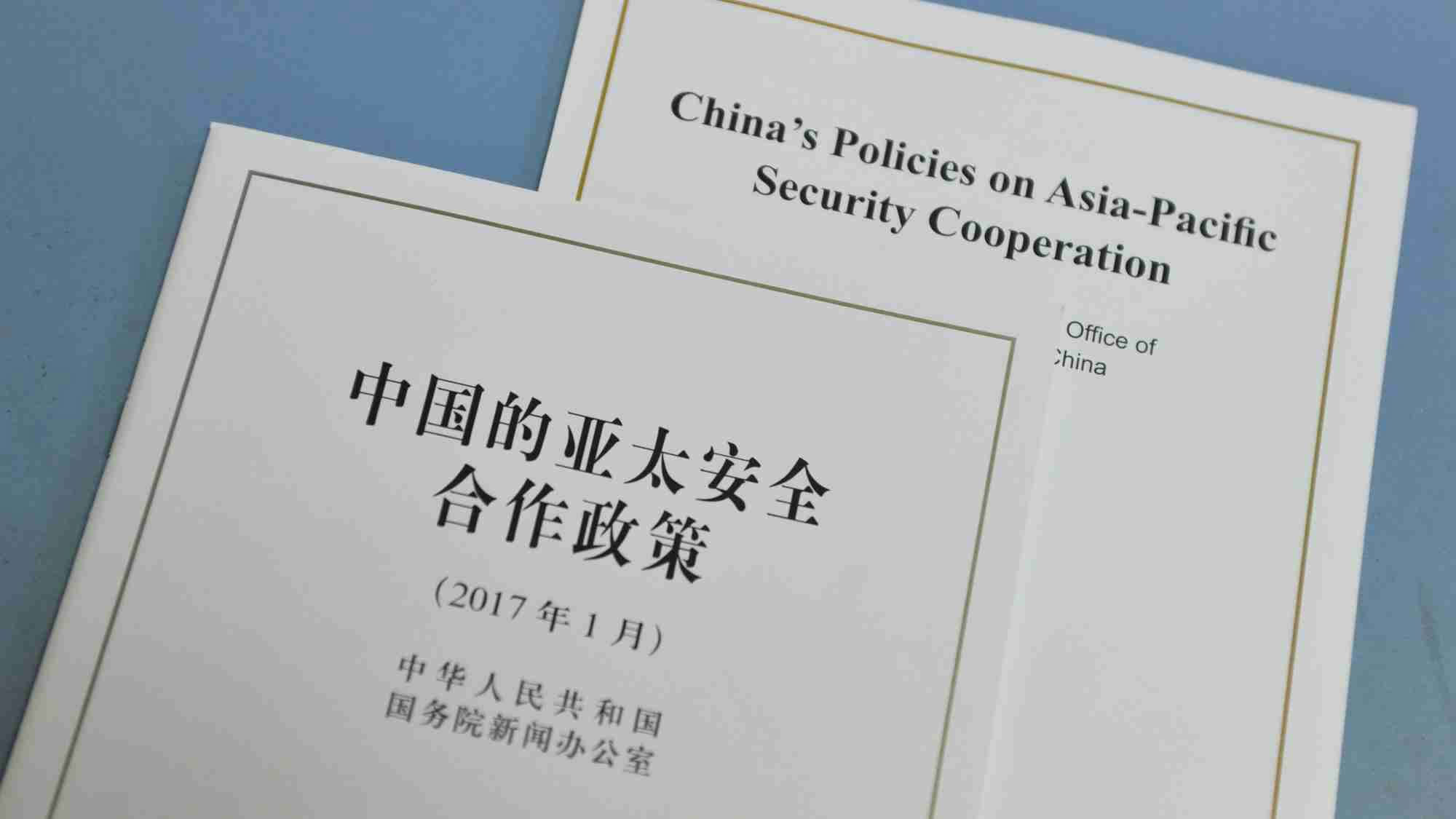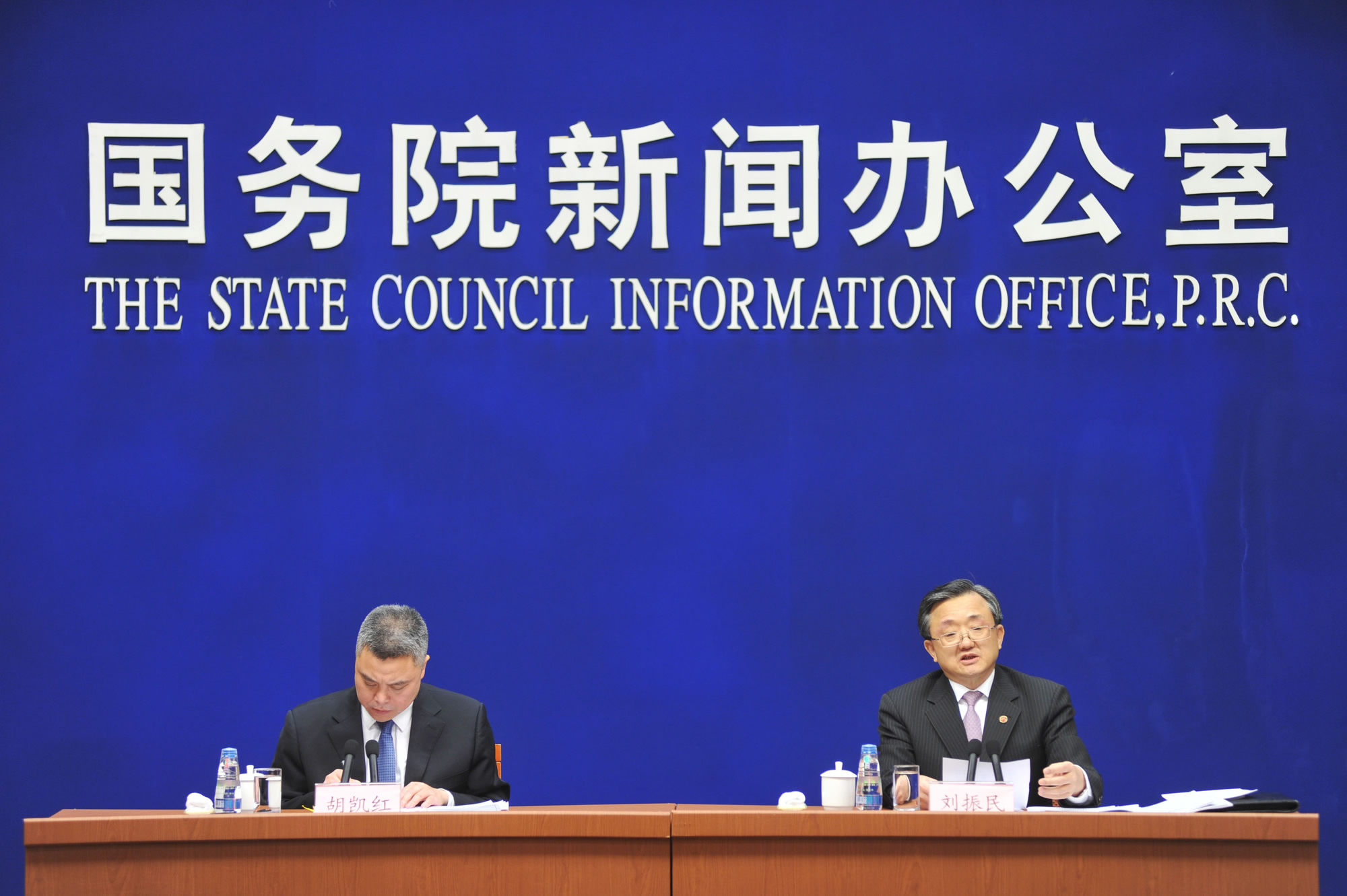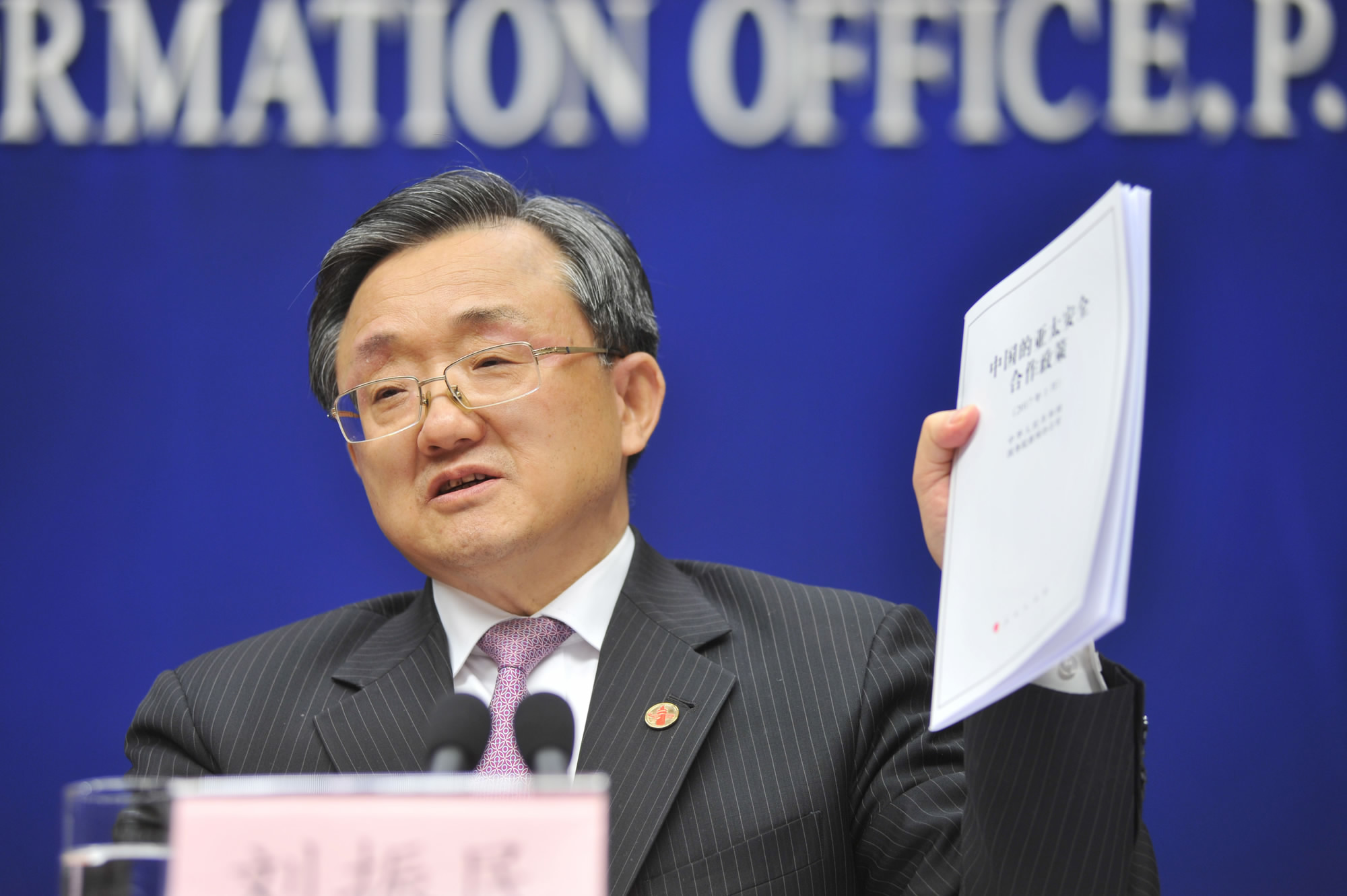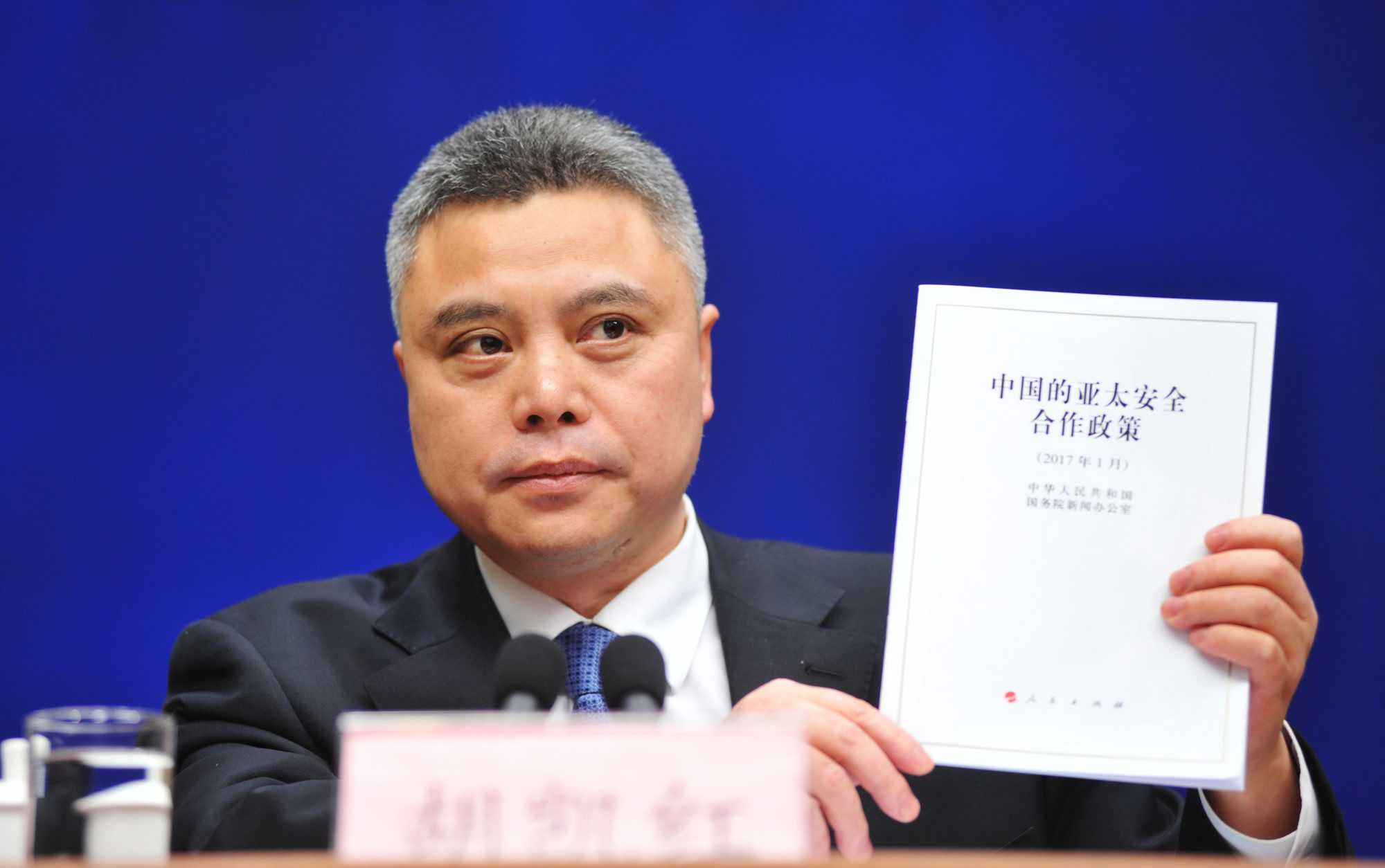
Politics
18:10, 11-Jan-2017
China releases first white paper on security cooperation in Asia-Pacific
Updated
10:33, 28-Jun-2018

China’s State Council Information Office on Wednesday released a white paper on its security cooperation in the Asia-Pacific region. The report, the first of its kind to be published, explains China's stance on security issues within the region and its proposal for further cooperation with other regional players.
The white paper, titled "China's Policies on Asia-Pacific Security Cooperation", outlines the country’s policies and positions on Asia-Pacific security cooperation, its security vision for the region, its relations with other major Asia-Pacific countries, its views on regional hotspot issues as well as its participation in major multilateral mechanisms and non-traditional security cooperation within the area.

Vice Foreign Minister Liu Zhenmin (R) and Spokesperson for the State Council Information Office Hu Kaihong (L) attend a press conference marking the release of a white paper on China’s security cooperation in the Asia-Pacific region in Beijing, China on January 11, 2017. /CFP Photo
Vice Foreign Minister Liu Zhenmin (R) and Spokesperson for the State Council Information Office Hu Kaihong (L) attend a press conference marking the release of a white paper on China’s security cooperation in the Asia-Pacific region in Beijing, China on January 11, 2017. /CFP Photo
China is committed to promoting peace and stability in this region. It follows the path of peaceful development and the mutually beneficial strategy of opening up, and pursues friendly cooperation with all countries on the basis of the Five Principles of Peaceful Coexistence, the paper says.
Tensions have been growing in the East and South China Seas. The security situation in the Korean Peninsula is deteriorating, with the Democratic People's Republic of Korea (DPRK) continuing with nuclear tests and the Republic of Korea (ROK) in the process of deploying a controversial THAAD defense system. And over the past two decades, nearly half of the world's pirate attacks have taken place in Southeast Asia.
The white paper stresses that China has actively pushed for peaceful solutions to hotspot issues in the region, and played its due role as a responsible country.

Vice Foreign Minister Liu Zhenmin presents the white paper in a press conference in Beijing, China on January 11, 2017. /CFP Photo
Vice Foreign Minister Liu Zhenmin presents the white paper in a press conference in Beijing, China on January 11, 2017. /CFP Photo
The arbitration ruling on the South China Sea dispute made global headlines last year. In the paper, the country reiterated its unchanged stance that China is committed to upholding peace and stability in the South China Sea, and working for peaceful solutions to the disputes over territories and maritime rights and interests with the countries directly involved through friendly negotiation and consultation.
The paper also emphasizes China’s firm opposition to the deployment of the THAAD anti-ballistic missile system in the ROK, and strongly urges the US and the ROK to stop this process.
In regard to counter-terrorism cooperation, the paper states that the Chinese government opposes terrorism in all forms and calls on the international community to cooperate in fighting terrorism on the basis of the purposes and principles of the Charter of the United Nations and other universally recognized norms governing international relations.

Hu Kaihong, Spokesperson for the State Council Information Office, presents the white paper in a press conference in Beijing, China on January11, 2017. /CFP Photo
Hu Kaihong, Spokesperson for the State Council Information Office, presents the white paper in a press conference in Beijing, China on January11, 2017. /CFP Photo
According to the white paper, Beijing aims to promote mutual development, partnership, multilateral mechanism, common rules and military cooperation in the region.
The paper also reviews China’s relations with heavyweights such as the United States, Russia, India and Japan. The report says China has always been safeguarding peace and stability in the region, and is willing to join hands with other countries to create a brighter future.
In the last section of the paper, cooperation mechanisms that China participates in are listed, such as China-ASEAN Cooperation, China-Japan-ROK Cooperation, Shanghai Cooperation Organization, as well as some non-traditional security cooperation in disaster relief, anti-terrorism and cyber security.
9km

SITEMAP
Copyright © 2018 CGTN. Beijing ICP prepared NO.16065310-3
Copyright © 2018 CGTN. Beijing ICP prepared NO.16065310-3